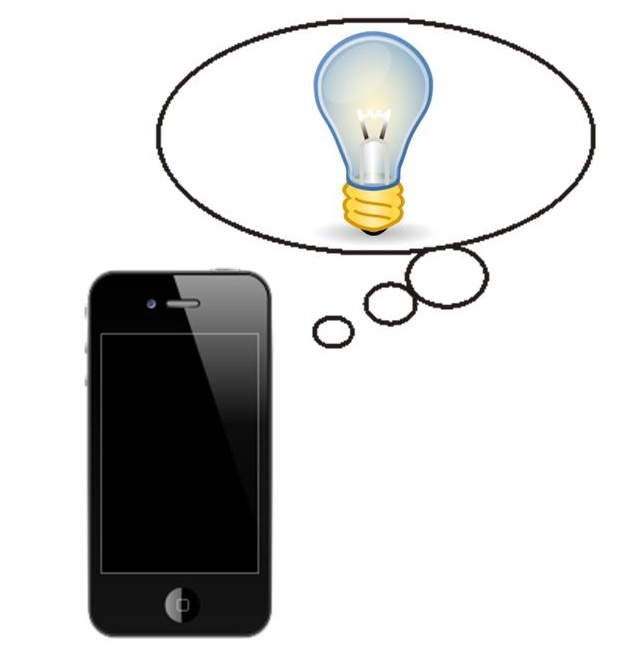 When thinking of mobile and cellular technology, consumers typically think of their laptop with WIFI, their phone, and possibly tablets like the iPad. However, technology trends all point to mobile capabilities creeping up everywhere leading to a new generation that will never know a life that is not ultra connected to the rest of the world.
When thinking of mobile and cellular technology, consumers typically think of their laptop with WIFI, their phone, and possibly tablets like the iPad. However, technology trends all point to mobile capabilities creeping up everywhere leading to a new generation that will never know a life that is not ultra connected to the rest of the world.
Technology trends in every sector
This years Consumer Electronics Show in Las Vegas was all about the vast expansion of mobile technologies into every aspect of life and how the next generation will rely on mobile connectivity like never before. Keynote speaker for the event was chief executive of Qualcomm, Paul Jacobs. Qualcomm has produced chips for 11 billion devices but is hardly the household name like Microsoft, which handled keynotes in the recent past.
Mobile life is now not just about the mobile phone or the iPad. Technology trends already see this type of technology and connectivity in the workplace, healthcare, cars, movies, and televisions. Gaming uses it, as many game consoles connect to the internet and are used for more than just playing simple video games. Some believe that mobile will even some day play a part in our bodies. Mobile commerce is also on the rise, making paying for everyday items without cash something anyone with a smartphone can do.
Mobilizing the young
CES started out with actors playing the roles of some of the people society may find most annoying whether in line for coffee or waiting for a subway. Some roles included the geeky gamer with a surfer dialog, the young girl that believes everything that happens deserves the “OMG” treatment, and many more. They seem unrelated, but they all shared the same trait, being born into a world where mobile technology trends are here to stay.
With close to 85 percent of people around the world stating that they could not see a day through without accessing their mobile device, it is clear to see this is not just in the U.S. but everywhere. Smartphone technology is so common that consumers will see it in more and more aspects of their lives, as in things like Google’s Project Glass smart glasses, digital cameras, and smarter TVs.
 Project Glass not likely to offer augmented reality at launch
Project Glass not likely to offer augmented reality at launch
Google’s Project Glass has been receiving limited attention in recent months, largely due to the fact that Google has pumped the brakes on its promotional campaigns concerning the augmented reality glasses. Project Glass remains in a state of early development, but several prototype models have been seen in the real world, outside of Google’s laboratory. There have been rumors circulating that Project Glass will not actually include augmented reality technology, a feature that drew in the majority of attention concerning the high-tech eyewear. These rumors may actually be true.
Head engineer notes that augmented reality is not an immediate goal
Project Glass head engineer Babak Parviz has announced that augmented reality is not an immediate goal for the project. This may come as a shock for consumers that have been looking forward to the high-tech eyewear because Google has been very adamant about the inclusion of augmented reality technology in Project Glass. When the glasses were first unveiled in early 2012, augmented reality was billed as one of the project’s primary features.
Google faces criticism for hyping augmented reality
For several months after the unveiling of Project Glass, Google has been pushing the idea that augmented reality would be one of the cornerstone features of the glasses. According to Parviz, however, augmented reality has been difficult to incorporate into the project. As such, augmented reality may be completely absent from the commercial launch of Project Glass. Instead, the eyewear will come with an application programming interface that will allow developers to create their own applications.
Developers able to create their own applications for Project Glass
The application programming interface will be able to support augmented reality applications and Project Glass itself will certainly be equipped with the hardware necessary for these applications to run smoothly. Future incarnations of Project Glass may include augmented reality of its own, but the technology is not likely to be seen in the first commercial products that are released from Google.
 When thinking of mobile and cellular technology, consumers typically think of their laptop with WIFI, their phone, and possibly tablets like the iPad. However, technology trends all point to mobile capabilities creeping up everywhere leading to a new generation that will never know a life that is not ultra connected to the rest of the world.
When thinking of mobile and cellular technology, consumers typically think of their laptop with WIFI, their phone, and possibly tablets like the iPad. However, technology trends all point to mobile capabilities creeping up everywhere leading to a new generation that will never know a life that is not ultra connected to the rest of the world.
 Project Glass not likely to offer augmented reality at launch
Project Glass not likely to offer augmented reality at launch